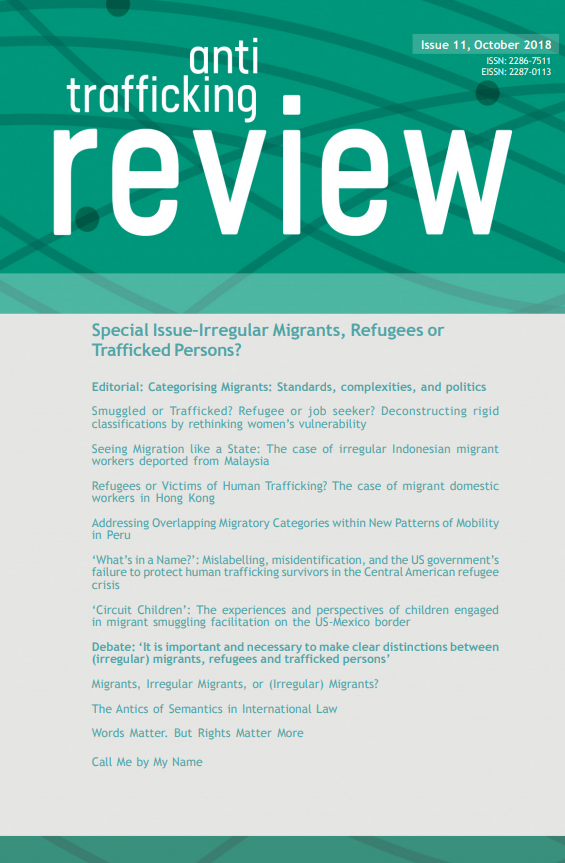International migration has become a ‘mega trend’ of our times, with more than 260 million migrants living outside their country of origin in 2017. Some move in search of better livelihood opportunities, others flee conflict, environmental degradation or natural disasters, and yet others are deceived or coerced into exploitative work. At the same time, the categories developed by the international community for people on the move—such as smuggled migrants, refugees, or trafficked persons—are increasingly inadequate to capture today’s complex migration flows. Yet the label that a person is given by authorities can mean the difference between assistance and protection, or arrest and deportation.
This special issue of the Anti-Trafficking Review examines migratory categories and their use among authorities and humanitarian actors. Contributions from Indonesia/Malaysia, Hong Kong SAR, Italy, Peru and the United States explore the overlaps between categories such as ‘refugee’, ‘asylum seeker’, ‘smuggled migrant’, ‘irregular migrant’ and ‘victim of trafficking’ and their impact on migrants’ human rights. In the debate section, four authors discuss the statement ‘It is important and necessary to make clear distinctions between (irregular) migrants, refugees and trafficked persons’.

